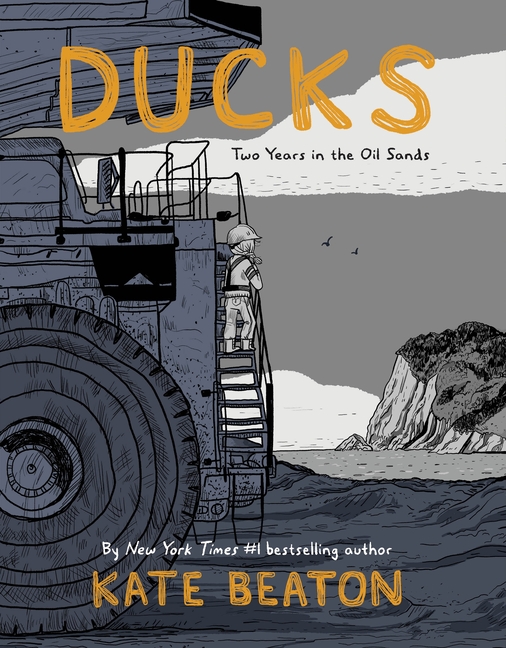Ducks is anchored by Katie’s time in the mines, but it seeks to show her experiences as typical of a much larger swath of workers who are lured to the oil sands at the cost of their health, their dignity, and sometimes their lives. The Katie of Ducks is the author’s younger self, but she is also the reader’s guide to the intricacies of an all-too-usual life ... As if to underscore the book’s distance from her old lighthearted work, Beaton has filled several of the interstices between chapters and scenes with staggering, gigantic drawings of mining equipment and aerial views of the mines themselves; the images aren’t beautiful, exactly, but they are excellent, and they suggest the scale and seriousness of Beaton’s ambition ... a work of more than four hundred pages, but Beaton has compressed its narrative in ways that make it as fluidly readable as a Hark! strip. She has also put her skill at omission to new uses. Many of the book’s important events are cropped out, into the invisible areas between pages and chapters, to be revisited later ... a rebuttal to hierarchies of silence, an attempt to draw attention to forms of suffering that are easier to ignore. The punishing and lonely experiences of the people who perform the actual labor of the petroleum industry are often withheld and concealed—they are inconvenient for employers, shameful for the workers themselves, and difficult for outsiders to grasp. They are perhaps most readily available in metaphor. Under the dust jacket of her book, Beaton has hidden the silhouette of a duck, embossed into the cover with a pretty rainbow-wrapping-paper foil that shimmers like an oil slick.
Read Full Review >>

